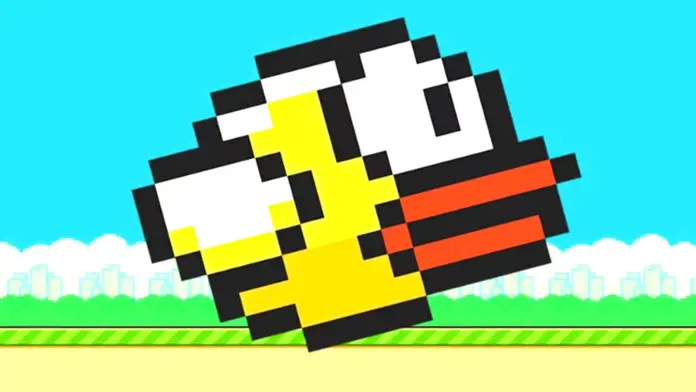The rise and fall of Flappy Bird: He hated his own game, even though it made him a millionaire
Remember the first viral mobile games that seemingly everyone had? I’m talking about games like Angry Birds, Doodle Jump and Fruit Ninja. The story behind one of these classics is particularly curious: Flappy Bird.
The little yellow bird took the world by storm and made its developer, Nguyen Ha Dong, a millionaire overnight – and yet he decided to simply remove the game from the app stores one day.
The reason: it ruined his life. I’ll tell you what’s behind it and what Ha Dong is doing today here.
What is Flappy Bird anyway?
For those of you who aren’t as old as me or weren’t much into smartphone games back in the day:
Flappy Bird was a simple 2D game where you had to steer a little yellow bird through an endless series of green tubes. Your task was to make the bird fly as far as possible without touching the tubes. Sounds simple, doesn’t it?
Why was Flappy Bird so successful? It was the simple nature that made the game so appealing. With its minimalist graphics and simple gameplay, it captivated millions of players worldwide. The yellow bird took off especially strongly when the biggest YouTuber at the time, PewDiePie, uploaded a Let’s Play and introduced the mobile game to his viewers.
But what really set Flappy Bird apart was its merciless difficulty The precise control of the bird was a real challenge and it was extremely tempting to play round after round. The game spread like wildfire on social media and soon half the world was playing Flappy Bird.
For some time, the game was the most popular app in the world.
Why did it ruin Ha Dong’s life?
But how can such a huge success ruin a person’s life? Isn’t that the dream of every game developer?
Fame and fortune have downsides: It turned out that the sudden fame and immense financial success were a real burden for Nguyen Ha Dong. When the game reached its peak, he earned an estimated $50,000 per day from in-game advertising. That’s a sum most developers can only dream of.
However, this wealth also brought problems. The pressure to maintain such a successful game was enormous.
There was no escape for the young developer: Ha Dong was besieged by fans, received numerous messages and calls, and his life was scrutinized by prying eyes.
As the game gained international notoriety, the Vietnamese press also caught wind of it and besieged his house practically around the clock.
The success of the game had created a real hype that was out of control.
In addition, there were numerous accusationsthrown in Ha Dong’s direction. From parents blaming him for their children’s Flappy Bird addiction, to journalists and developers accusing him of asset theft (The green tubes could have come straight out of Super Mario).
In the end, Dong could no longer withstand the pressure. He decided to remove Flappy Bird from the app stores, which led to an outcry in the gaming community.
I am sorry ‘Flappy Bird’ users, 22 hours from now, I will take ‘Flappy Bird’ down. I cannot take this anymore.
– Dong Nguyen (@dongatory) February 8, 2014
The first comment on this tweet with over 800 likes came from a user saying “a LOT of people would kill to have such success you ungrateful piece of s***” Such comments were not uncommon, unfortunately.
For Ha Dong, removing the game was the only way out to regain his privacy and relieve the pressure.
The game was never meant to be addictive: He also admitted that he felt guilty because he believed his game was too addictive and robbed people of their time. In an interview with Forbes, the indie developer said that Flappy Bird was meant to be a relaxing game for in-between times – not to get players hooked.
“It has become a problem, “ said Ha Dong.
What is the Flappy Bird developer doing today?
After taking Flappy Bird offline, Nguyen Ha Dong tried to get his life back on track. He withdrew from the public eye and focused on developing games that attracted less attention.
Dong has since released a few more games, such as Swing Copters and Ninja Spinki Challenges, but none of them achieved the same hype as Flappy Bird. He tried to live a normal life, away from the excessive attention he received before. Whether he’ll ever create such a successful game again remains to be seen – or maybe he doesn’t want to.
The story of Flappy Bird shows that success isn’t always what you dream of, and that fame brings its own challenges.
Do you understand Ha Dong’s decision? How would you have acted in his place? Should Ha Dong have left the game online or was removing it the only and right decision? And have you played Flappy Bird yourself in the past or even known people who were addicted to the game? Write us your opinion and experiences in the comments!


